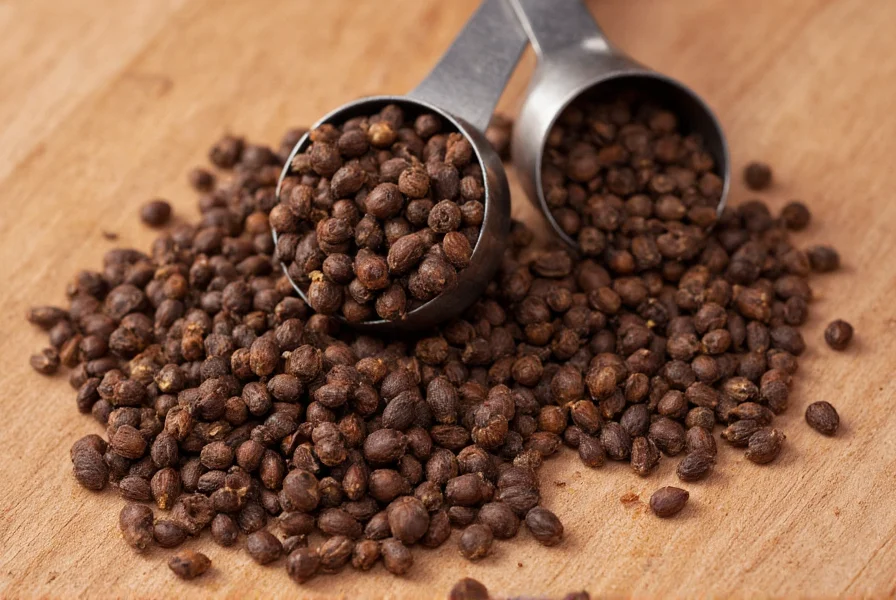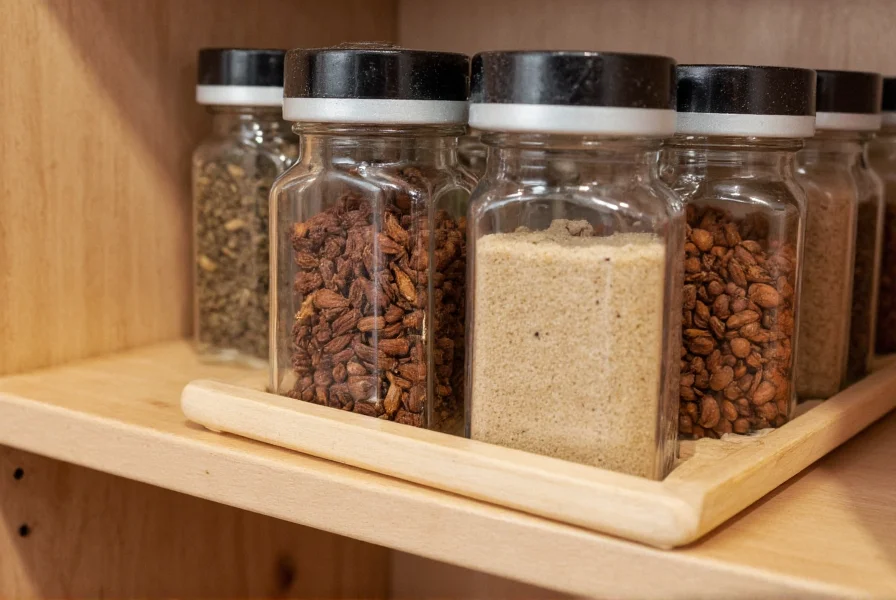Cloves represent one of the world's oldest and most valued spices, with historical records showing their use dating back to ancient Chinese civilizations over 2,000 years ago. These small, nail-shaped dried flower buds come from the Syzygium aromaticum evergreen tree, native to the Maluku Islands in Indonesia but now cultivated across tropical regions including Madagascar, Sri Lanka, and Tanzania.
Botanical Characteristics and Production
The clove tree grows to approximately 8-12 meters in height and produces flower buds that start as pale yellow, gradually turning green, then red as they mature. Harvesters collect these buds just before they open, typically in the rainy season. The buds undergo sun-drying for 4-5 days until they turn dark brown and develop their characteristic strong aroma and flavor.
| Top Clove Producing Countries | Annual Production (Metric Tons) | Global Market Share |
|---|---|---|
| Indonesia | 110,000 | 75% |
| Tanzania | 25,000 | 17% |
| Madagascar | 10,000 | 7% |
| Other Countries | 2,000 | 1% |
Nutritional Profile of Cloves
Per 100 grams, cloves contain significant amounts of manganese (30 mg, 130% of daily value), vitamin K (140 mcg, 116% DV), and dietary fiber (33 g, 117% DV). They also provide moderate amounts of calcium, magnesium, and vitamin C. The primary bioactive compound in cloves is eugenol, comprising 70-90% of the essential oil content, which gives cloves their distinctive aroma and potential therapeutic properties.
Culinary Applications of Cloves
Chefs worldwide utilize cloves for their warm, sweet, and slightly bitter flavor profile. When cooking with cloves, remember these practical tips:
- Use whole cloves for slow-cooked dishes like stews, braises, and mulled beverages
- Grind cloves fresh for best flavor in spice blends and baked goods
- Limited to 1-2 whole cloves per pound of meat to avoid overpowering dishes
- Pair exceptionally well with cinnamon, nutmeg, and allspice in holiday recipes
- Add to rice dishes for subtle aromatic complexity
Professional chefs often stud onions with cloves when making stocks and soups, removing them before serving. For baking applications like gingerbread or pumpkin pie, ground cloves work best when combined with other warm spices.

Traditional and Potential Health Benefits
Traditional medicine systems including Ayurveda and Traditional Chinese Medicine have used cloves for centuries to address dental discomfort, digestive issues, and respiratory conditions. Modern research suggests several potential benefits:
Eugenol, the main component of clove oil, demonstrates significant antioxidant activity in laboratory studies. Research published in the Journal of Agricultural and Food Chemistry found cloves rank among the highest antioxidant foods when measured by ORAC (Oxygen Radical Absorbance Capacity) values.
Dental applications represent one of the most well-documented uses of cloves. The American Dental Association acknowledges clove oil's temporary pain-relieving properties for toothaches, though it emphasizes this should not replace professional dental care. Many over-the-counter dental pain products contain eugenol as an active ingredient.
Studies suggest cloves may support healthy blood sugar levels and liver function, though more human research is needed. The National Center for Complementary and Integrative Health cautions that while preliminary research shows promise, cloves should not be considered a treatment for medical conditions.
Proper Selection and Storage Techniques
When purchasing cloves, look for these quality indicators:
- Deep reddish-brown color (avoid pale or yellowish cloves)
- Strong, pungent aroma when crushed
- Heavy weight indicating high oil content
- Intact buds without cracks or breaks
For optimal storage, keep whole cloves in airtight glass containers away from light and heat. Properly stored, they maintain peak quality for 1-2 years. Ground cloves lose potency more quickly and should be used within 6 months. Freezing cloves in vacuum-sealed containers can extend their shelf life to 3 years while preserving maximum flavor.

Safety Considerations and Potential Side Effects
While cloves are safe as a culinary spice, concentrated clove oil requires caution. The FDA considers clove oil Generally Recognized As Safe (GRAS) for food use but warns against undiluted topical application. Potential concerns include:
- Dental tissue irritation from excessive direct application
- Bleeding risks when combined with blood-thinning medications
- Skin irritation in sensitive individuals
- Potential liver toxicity at extremely high doses
Children should avoid clove oil due to potential respiratory complications. The European Medicines Agency recommends against using clove oil for children under 2 years. As with any natural remedy, consult your healthcare provider before using cloves medicinally, especially if you have existing health conditions or take prescription medications.
Conclusion
Cloves remain one of the world's most versatile and historically significant spices. Their unique flavor profile enhances countless culinary creations while their bioactive compounds show promise for various health applications. When used appropriately as part of a balanced diet, cloves contribute both delicious flavor and potential wellness benefits to your kitchen repertoire. Understanding proper usage, storage, and realistic expectations helps maximize the value of this ancient spice in modern cooking and wellness practices.
Frequently Asked Questions
What are cloves and where do they come from?
Cloves are the dried flower buds of the Syzygium aromaticum tree, an evergreen native to the Maluku Islands in Indonesia. These small, nail-shaped spices have been used for over 2,000 years in cooking and traditional medicine across Asian and Middle Eastern cultures.
How can I use cloves for toothache relief?
For temporary toothache relief, gently press a whole clove against the affected area or apply one drop of diluted clove oil (mixed with carrier oil) using a cotton swab. The eugenol in cloves acts as a natural anesthetic and antibacterial agent. However, this provides only temporary relief and you should schedule an appointment with your dentist for proper treatment.
What's the difference between whole cloves and ground cloves?
Whole cloves retain their flavor and potency significantly longer than ground cloves. Whole cloves stay fresh for 1-2 years when properly stored, while ground cloves lose potency within 6 months. Whole cloves work best in slow-cooked dishes where they can be removed before serving, while ground cloves distribute more evenly in baked goods and spice blends.
Can cloves help with digestion?
Traditional medicine systems have used cloves to support digestion for centuries. Some studies suggest cloves may stimulate digestive enzyme production and help reduce gas and bloating. Consuming cloves in moderation as part of meals may support digestive health, though scientific evidence remains limited. Clove tea made by steeping 2-3 whole cloves in hot water for 5-10 minutes represents a traditional preparation method.
Are there any risks associated with consuming cloves?
As a culinary spice, cloves are generally safe when consumed in normal food amounts. However, concentrated clove oil can cause tissue irritation, bleeding risks when combined with blood thinners, and potential liver toxicity at extremely high doses. Children should avoid clove oil due to potential respiratory complications. Always consult your healthcare provider before using cloves medicinally, especially if you have existing health conditions.










 浙公网安备
33010002000092号
浙公网安备
33010002000092号 浙B2-20120091-4
浙B2-20120091-4